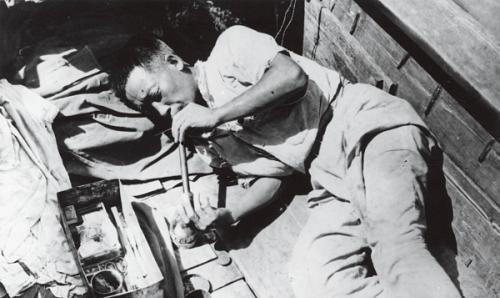Humanistic perspective
Edited the I Nine Song
China's modern history is a piece of history that deserves everyone's study and deep consideration. In the late Qing Dynasty, the Qing government pursued a closed country and a "heavenly kingdom" posture, but the Qing court at that time had long been overtaken by the Western powers.
In order to open the door to China, the Western powers began to send many missionaries to secretly collect some information about China and spread Western ideas in China. But at that time, Chinese ideology was still relatively ignorant, and the Western powers took a rough approach, directly opening the door to China through war.
The first to see the Chinese market is britain, a country known as the "empire that never sets", which uses its achievements in the first industrial revolution to colonize other countries. In the late Qing Dynasty, China was also deeply affected.

By launching the First Opium War and the Second Opium War, Britain gradually opened the door to China and dumped opium on China, causing many Chinese to become infected with opium. According to statistics, in China at that time, from nobles to commoners, countless people were cannibalized by opium.
At that time, the size of the Chinese was roughly bony and godless, and the Chinese at that time were called "the sick man of East Asia" by the Western powers. China has been far ahead of the rest of the world for the past two millennia, but by the late Qing Dynasty, everything had changed.
The term "Sick Man of East Asia" was originally called "Sick Man of the East" and comes from an article published on October 17, 1896 by the Shanghai Zi Lin Xi Bao (this is an English newspaper sponsored by Henry Shearman, The English name TzuLinHsiPao, NorthChina DailyNews, founded in Shanghai on August 30, 1850), and the author is An Englishman.
This title is undoubtedly full of contempt for Chinese, and it is also a manifestation of China's contempt for the Western powers at that time. Chinese also gradually got rid of such a humiliating title through his own efforts.
However, long before the emergence of the "sick man of East Asia", there was also a country in the West, which was also called "sick man". Once upon a time, this country was as powerful as China, but the two countries ended up completely different.
There was once a country with borders spanning three continents, Europe, Asia and Africa, and in 1683, its area reached 5.5 million square kilometers. This huge empire began to show gradual fatigue in the second half of the 16th century.
The Austro-Hungarian Empire was this huge empire, but the further back it went, the lower its sense of existence became, so that it was called "The Sick Man of West Asia" by other European countries, and also known as the "Sick Man of Europe". How this empire, which once spanned Europe, Asia and Africa, and the richest, went into decline and was also called the "Sick Man of West Asia".
The Austro-Hungarian Empire continued to expand abroad, and the long war, coupled with frequent diplomatic failures, finally declined in the 17th century. The reasons for the decline of the Austro-Hungarian Empire were somewhat different from those of China, which was defeated by closed countries and corruption, while the reason for the collapse of the Austro-Hungarian Empire was not only successive years of war, but also because the internal strife was extremely serious and had affected the regime.
The Austro-Hungarian Empire was originally a constant plunder of the territory of other countries, and there were many ethnic disputes, and the factors of national secession were too serious. Coupled with the rapid economic development of other European countries at that time, the technology of the Austro-Hungarian Empire was even less advanced, so the Austro-Hungarian Empire began to become the younger brother of other European countries from the identity of the big brother.
In order not to cause greater turmoil, the rest of Europe did not abolish the status of the Austro-Hungarian Empire and continued to retain its status until 1922, when the National Government announced the deposing of Sultan Mehmed VI, the abolition of the sultanate, and the end of the Ottoman Empire.
Since then, the "Sick Man of West Asia" has ceased to exist. However, in order to get rid of the title of "sick man of East Asia" left by the late Qing Dynasty, China has been working hard. In 1972, Bruce Lee's original film "Jingwumen" was released, announcing to the world that Chinese was not the sick man of East Asia. It has attracted hundreds of millions of Chinese to boil with blood.
China's modern history, this period of humiliation, deserves deep consideration by each and every one of us. For individuals, in addition to the satisfaction of food, clothing, shelter and transportation, we also need to gain the praise of others and understand the value of our own existence in the world; relative to the country, getting the respect that other people should have is the proudest thing for us as Chinese.
Today's China has long been rid of the past hundred years of the past day, in the face of the future, we should hold our heads high and show our better side.